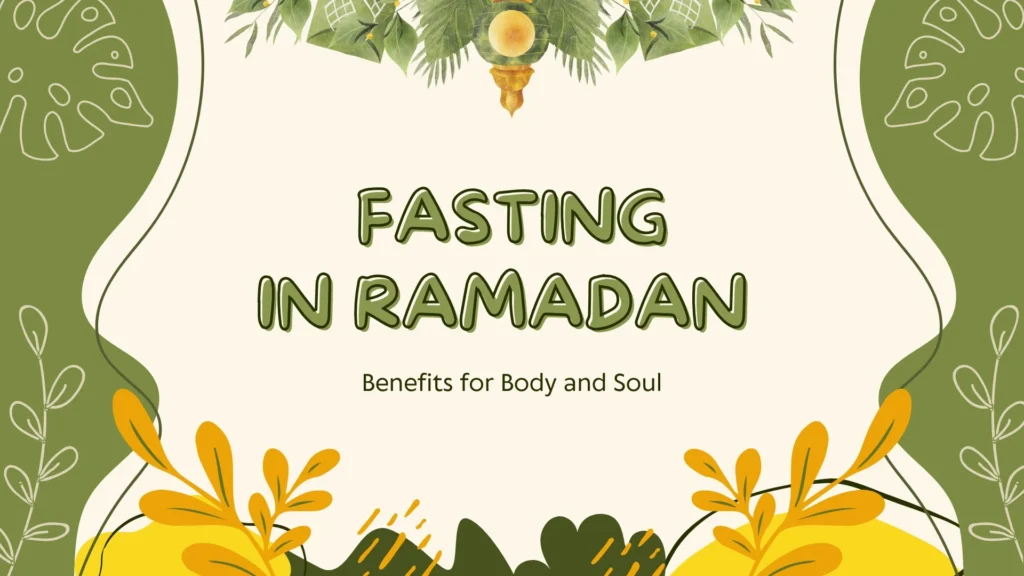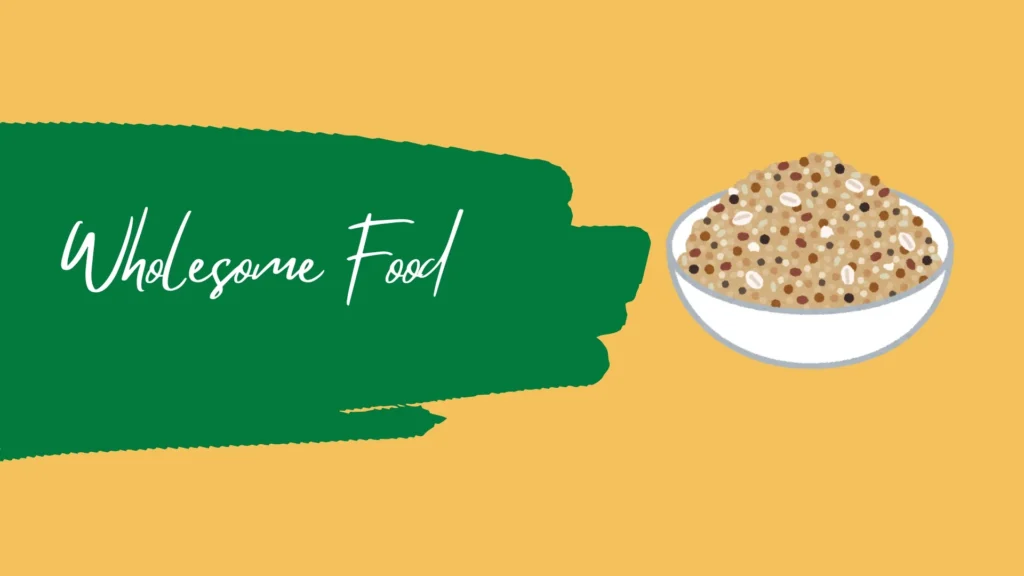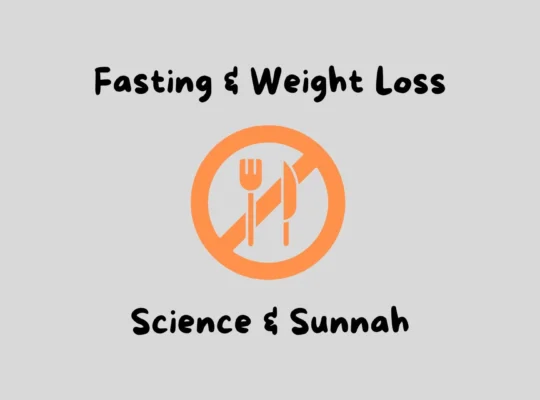As -Salamu-Alaikum !
The teachings of Prophet Muhammad (peace be upon him) extend to all aspects of life, including our dietary habits. Known for their simplicity, balance, and profound wisdom, the eating habits of the Prophet provide a timeless blueprint for achieving and maintaining a healthy lifestyle. In this blog post, we will explore Prophetic diet for weight loss in a sustainable and spiritually fulfilling manner.
Prophetic Diet for Weight Loss
The Prophetic diet refers to the dietary habits and food preferences of Prophet Muhammad (peace be upon him) as recorded in authentic Hadiths. His approach to eating emphasizes moderation, mindfulness, and consuming wholesome, natural foods. These principles resonate with modern nutritional science and offer a holistic approach to health and well-being.
Key features of the Prophetic diet include:
- Moderation: Avoiding overeating and practicing portion control.
- Mindful Eating: Eating slowly, with gratitude and mindfulness.
- Wholesome Foods: Consuming fresh, unprocessed, and natural foods.
- Fasting: Engaging in periodic fasting for spiritual and physical benefits.
Principles of the Prophetic Diet for Weight Loss
Here are some timeless principles of the Prophetic diet that can help with weight management:
1. Eat in Moderation
Prophet Muhammad (peace be upon him) said: “The son of Adam does not fill any vessel worse than his stomach. It is sufficient for the son of Adam to eat a few mouthfuls to keep him alive. If he must fill it, then one-third for his food, one-third for his drink, and one-third for air.” (Sunan Ibn Majah, 3349)
This advice underscores the importance of portion control. Overeating is a significant contributor to weight gain, and by limiting food intake to what is necessary, one can avoid unnecessary calorie accumulation.
Practical Tip: Use smaller plates and serve moderate portions. Focus on eating until you feel satisfied, not overly full.

2. Practice Fasting
Fasting was a regular practice of the Prophet, not only during Ramadan but also on specific days such as Mondays and Thursdays. Fasting has been scientifically proven to aid in weight loss by reducing calorie intake, improving metabolism, and promoting fat burning.
Intermittent Fasting: The practice of fasting and eating within a specific window aligns closely with the Sunnah. For instance, fasting from sunrise to sunset mirrors modern intermittent fasting methods, which are popular for weight management.
Practical Tip: Incorporate Sunnah fasting into your routine by fasting on Mondays and Thursdays or during the middle three days of each Islamic month (Ayyam Al-Beed).

3. Emphasize Wholesome Foods
The Prophet preferred natural and wholesome foods such as dates, honey, barley, milk, olive oil, and fruits. These foods are nutrient-dense and provide essential vitamins and minerals without unnecessary additives or preservatives.
- Dates: A source of natural sugars and energy, dates are an excellent snack.
- Honey: Known for its healing properties, it can be used as a natural sweetener.
- Barley: Highly nutritious and versatile, barley can be incorporated into soups and bread.
- Olive Oil: A healthy fat that promotes heart health and supports weight loss.
Practical Tip: Replace processed foods with natural alternatives. For instance, swap sugary snacks with dates or nuts and use honey instead of refined sugar.

4. Avoid Overeating
Practice 1/3 Rule: A key to healthy eating is following the prophetic advice of filling only one-third of your stomach with food, one-third with water, and leaving one-third empty for ease of digestion. This balanced approach not only prevents overeating but also helps maintain energy levels and supports overall well-being. By practicing this simple principle, you can cultivate mindful eating habits and better align your lifestyle with health-conscious goals.

5. Drink Water Mindfully
The Prophet encouraged drinking water in small sips rather than large gulps. Staying hydrated is crucial for overall health and can aid in weight loss by reducing hunger and improving digestion.
Practical Tip: Drink a glass of water before meals to help control your appetite and avoid overeating.
Benefits of Following the Prophetic Diet for Weight Loss
Adopting the Prophetic diet offers numerous benefits beyond weight loss:
- Improved Digestion: Eating mindfully and consuming wholesome foods support digestive health.
- Enhanced Energy: Natural foods provide sustained energy levels without the crash associated with processed foods.
- Spiritual Connection: Following the Sunnah in your diet fosters a sense of spiritual fulfillment and mindfulness.
- Sustainable Habits: The Prophetic diet promotes long-term, healthy eating patterns rather than quick fixes.
Sample Meal Plan Based on the Prophetic Diet
Here is a sample meal plan inspired by the Prophetic diet to help you get started:
Breakfast
- A glass of warm water with honey.
- A few dates and a small bowl of barley porridge.
Lunch
- Grilled fish or lean meat with olive oil.
- A salad with fresh vegetables and a drizzle of olive oil and vinegar.
- A small piece of whole-grain bread.
Snack
- A handful of nuts or seeds.
- Fresh fruit such as pomegranate or figs.
Dinner
- Lentil or barley soup.
- Steamed vegetables with olive oil.
- A cup of herbal tea.
Optional (for fasting days)
- Pre-dawn meal (Suhoor): Water, a few dates, and a small bowl of yogurt.
- Iftar: Break your fast with dates and water, followed by a light meal.
Final Thoughts
The Prophetic diet for weight loss is more than just a way to lose weight; it’s a holistic lifestyle that nurtures both the body and soul. By embracing these timeless principles, you can achieve sustainable weight loss while deepening your spiritual connection and overall well-being. Start small, make gradual changes, and let the wisdom of the Sunnah guide your journey to health and vitality.
Remember, a healthy lifestyle is a journey, not a destination. May Allah (SWT) bless your efforts and grant you success in achieving your health goals, Ameen.








[…] Prophetic Diet for Weight Loss […]